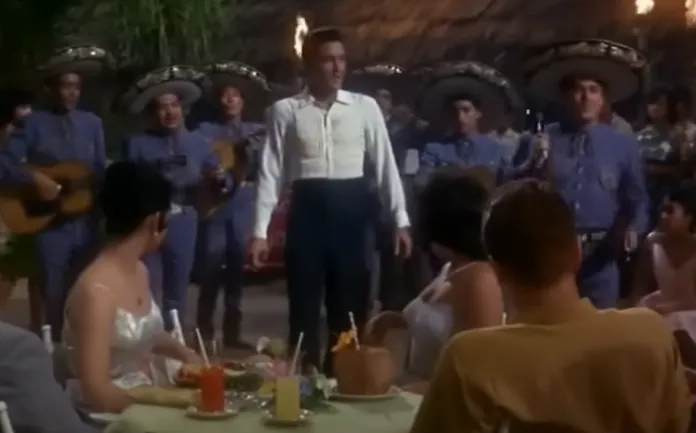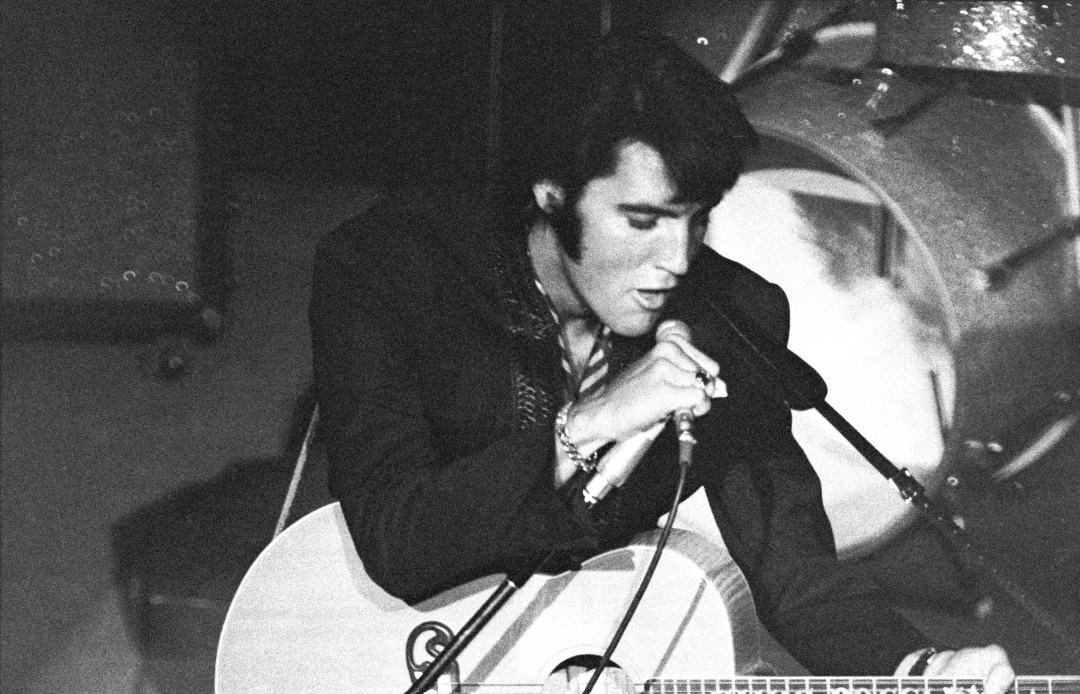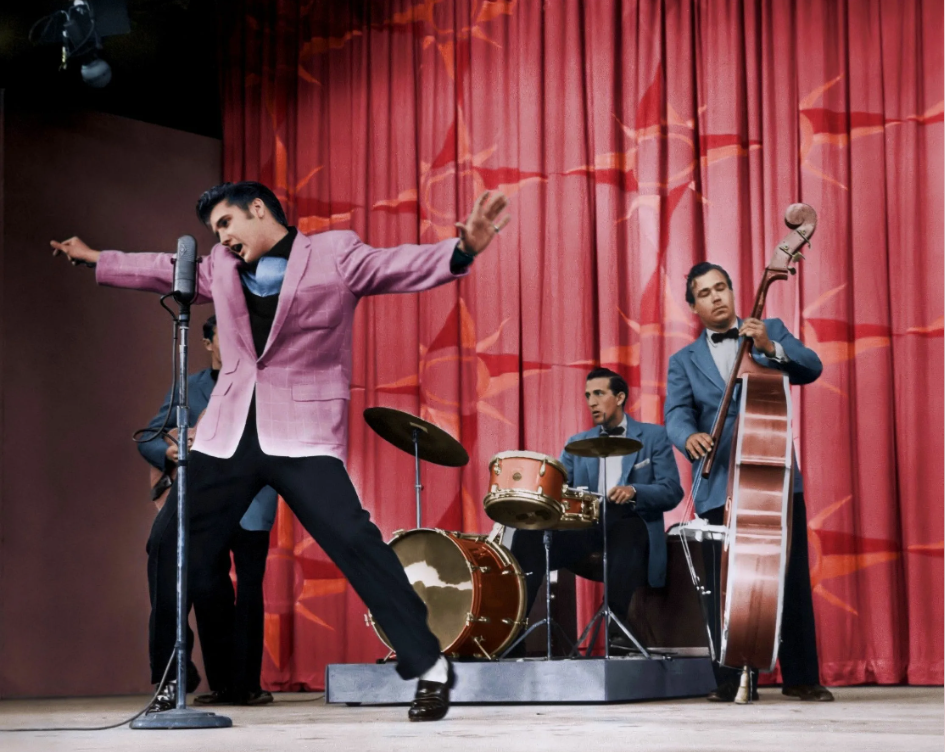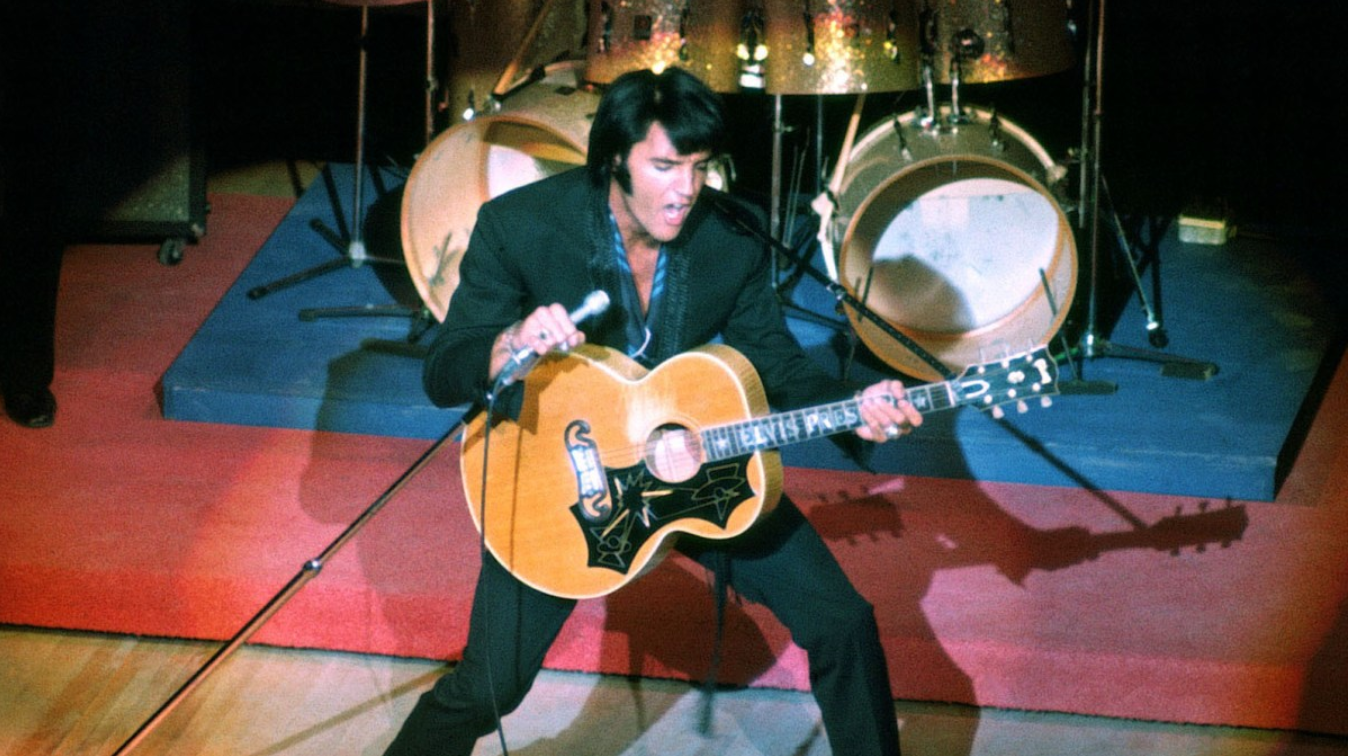Exploring the Impact and Legacy of "In the Ghetto" by Elvis Presley
(watch the video below)
"In the Ghetto" stands as one of Elvis Presley's most iconic songs, not only for its melodic appeal but also for its poignant narrative and social commentary. Released in 1969, during a tumultuous period in American history marked by social unrest and civil rights struggles, the song struck a chord with audiences worldwide. Its exploration of poverty, inequality, and the cycle of violence resonated deeply, making it a timeless classic that continues to provoke thought and inspire discussion.
In this essay, we will delve into the history, lyrics, musical composition, cultural impact, and enduring relevance of "In the Ghetto." By examining the song from various perspectives, we aim to gain a comprehensive understanding of its significance in the context of both Elvis Presley's career and broader societal issues.
To fully appreciate the significance of "In the Ghetto," it's essential to understand the historical context in which it was released. The late 1960s were marked by profound social upheaval in the United States. The civil rights movement was in full swing, challenging racial segregation and systemic discrimination. Additionally, the country was deeply divided over the Vietnam War, and economic inequality was a pressing issue, particularly in urban areas.

Elvis Presley, often referred to as the "King of Rock and Roll," had already established himself as a cultural icon by the late 1960s. However, his music was primarily associated with upbeat rockabilly tunes and romantic ballads. "In the Ghetto" represented a departure from his usual style, showcasing his willingness to tackle more serious subject matter.
"In the Ghetto" was written by Mac Davis, an accomplished songwriter who penned several hits for Elvis Presley. The inspiration for the song reportedly came from Davis's own experiences growing up in Lubbock, Texas, where he witnessed poverty and its accompanying struggles firsthand.
The lyrics tell the story of a young boy born into poverty in the inner city, whose life is tragically cut short by violence. The narrative paints a vivid picture of the cycle of poverty and despair that afflicts many urban communities, highlighting the systemic issues that perpetuate inequality and hardship.
The lyrics of "In the Ghetto" are powerful and evocative, capturing the stark reality of life in impoverished urban neighborhoods. From the opening lines, "As the snow flies / On a cold and gray Chicago mornin'," the song sets a somber tone, drawing listeners into the world it portrays.

Throughout the song, Elvis Presley's emotive delivery brings the lyrics to life, conveying a sense of empathy and compassion for the characters depicted. Lines such as "And his mama cries" and "And his hunger burns" evoke a visceral response, eliciting sympathy for the plight of the protagonist and others like him.
Musically, "In the Ghetto" is relatively simple yet incredibly effective. The song features a haunting melody accompanied by acoustic guitar, strings, and understated percussion. This minimalist arrangement allows the focus to remain on the lyrics and the emotional impact of Elvis Presley's vocals.
The song's arrangement builds gradually, adding layers of instrumentation as it progresses, culminating in a powerful crescendo during the final chorus. This dynamic structure serves to enhance the emotional intensity of the song, driving home its message with greater impact.
"In the Ghetto" was released at a time when popular music was increasingly being used as a platform for social and political commentary. As such, the song struck a chord with audiences around the world, resonating with people from all walks of life.

Its themes of poverty, inequality, and social injustice were particularly relevant in the late 1960s, as the United States grappled with the legacy of slavery, segregation, and discrimination. The song served as a reminder of the ongoing struggles faced by marginalized communities and sparked important conversations about the need for social change.
More than five decades after its release, "In the Ghetto" continues to resonate with audiences, attesting to its enduring relevance and timeless appeal. Its themes remain as relevant today as they were in 1969, serving as a reminder of the ongoing struggle for social justice and equality.
The song has been covered by numerous artists over the years, further cementing its status as a classic. Its message has also been referenced in various cultural contexts, from literature to film to political discourse, underscoring its enduring impact on popular culture.
"In the Ghetto" stands as a testament to the power of music to provoke thought, inspire empathy, and effect social change. Through its poignant lyrics, emotive vocals, and haunting melody, Elvis Presley's iconic song continues to captivate audiences and challenge us to confront the harsh realities of poverty and inequality. As we reflect on its enduring legacy, we are reminded of the importance of using art as a tool for understanding, compassion, and social justice.
Video
Lyrics
Let's sing along with the lyrics !
As the snow flies
On a cold and gray Chicago mornin'
A poor little baby child is born
In the ghetto
(In the ghetto)
And his mama cries
'Cause if there's one thing that she don't need
It is another hungry mouth to feed
In the ghetto
(In the ghetto)
People, don't you understand
The child needs a helping hand
Or he'll grow to be an angry young man some day
Take a look at you and me
Are we too blind to see?
Do we simply turn our heads
And look the other way
Well, the world turns
And a hungry little boy with a runny nose
Plays in the street as the cold wind blows
In the ghetto
(In the ghetto)
And his hunger burns
So he starts to roam the streets at night
And he learns how to steal
And he learns how to fight
In the ghetto
(In the ghetto)
Then one night in desperation
The young man breaks away
He buys a gun, steals a car
Tries to run, but he don't get far
And his mama cries
As a crowd gathers 'round an angry young man
Face down on the street with a gun in his hand
In the ghetto
(In the ghetto)
And as her young man dies
(In the ghetto)
On a cold and gray Chicago mornin'
Another little baby child is born
In the ghetto
(In the ghetto)
And his mama cries
(In the ghetto)
(In the ghetto)
(Ah)



